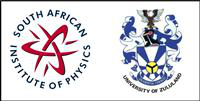Speaker
Abstract content <br> (Max 300 words)
Multijunction concentrator photovoltaic (CPV) cells comprise of a number of semiconductor materials, with multiple monolithically junctions integrated in series. These devices offer a better absorption of energy from a wider spectral range than that of conventional PV cells. This is achieved by means of the monolithically stacked junctions having their own specific spectral response absorbing in different wavelength regions (operating from 300-1800nm). The basic structure of a triple junction (TJ) CPV device consist of a series connection of 3 subcells where the photo generated current of whole device is determined by the lowest current producing subcell. Under AM1.5D and standardized operating conditions, the subcells’ current densities are well matched.
Current mismatch within the device can occur as a result of changes in the incident solar spectrum throughout the day, spectral absorption by the optics of the CPV system and an increase in operational temperature of the device.
The current mismatch is a result of the combination of the above resulting in, 1) a decreased spectral intensity incident on the device and 2) a spectral response shift of the materials to longer wavelengths. In this paper, the change in the current density of a CPV device as a function of the optics and temperature is discussed. Additionally, a spectral shaping and spectral response subcell model is proposed to optimize the operation of the device. This proposed model could possibly increase the devices longevity by offsetting the subcell current mismatch between the materials within the CPV device.
Apply to be<br> considered for a student <br> award (Yes / No)?
yes
Level for award<br> (Hons, MSc, <br> PhD)?
PhD
Would you like to <br> submit a short paper <br> for the Conference <br> Proceedings (Yes / No)?
yes
Main supervisor (name and email)<br>and his / her institution
Prof E.E van Dyk

